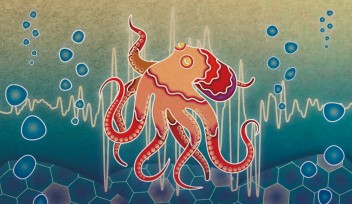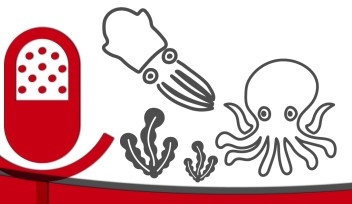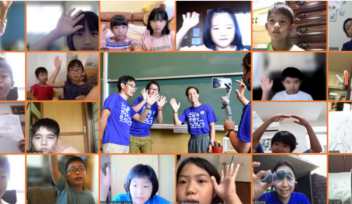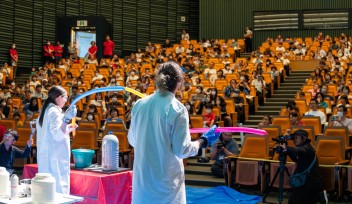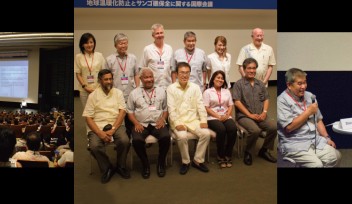Cephalopods 101: OIST hosts Marine Day Kids Lecture on campus
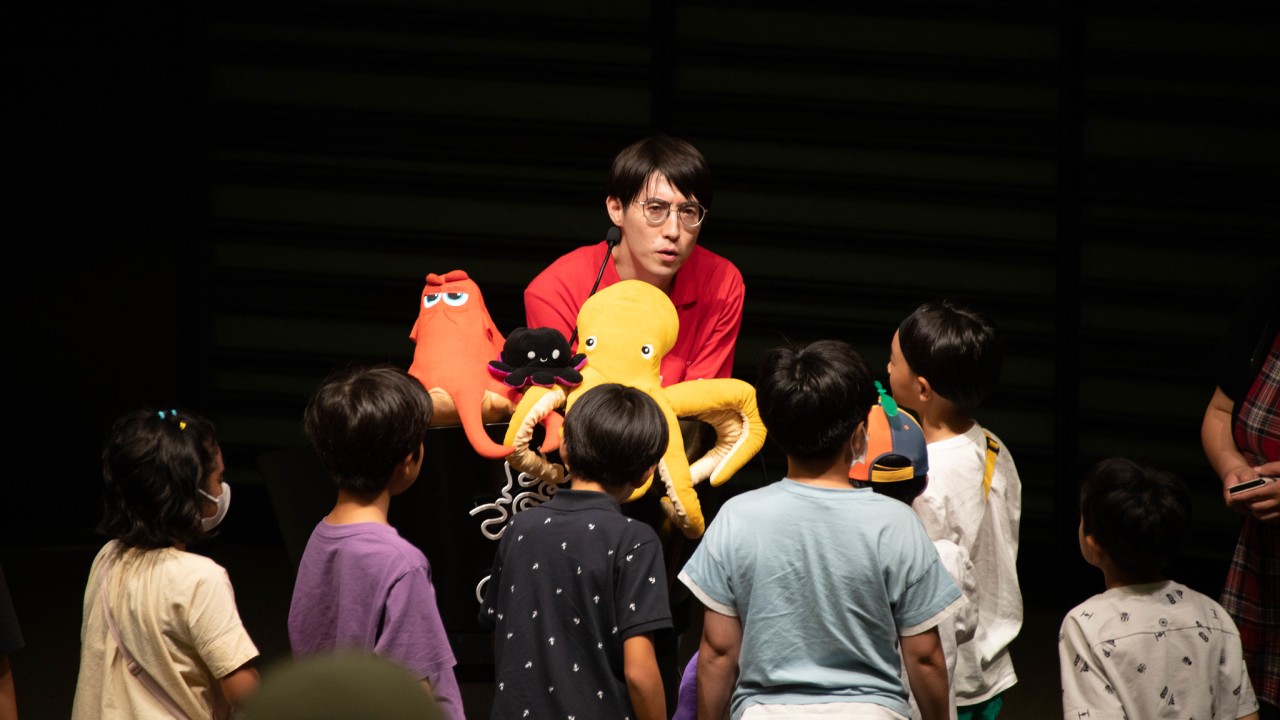
On July 13, Dr. Tomoyuki Mano, a postdoctoral researcher within the Computational Neuroethology Unit at the Okinawa Institute of Science and Technology (OIST), presented his Marine Day Kids Lecture entitled “Exploring Secrets of Cephalopods” to families from the local community. As he concluded his talk, a swarm of children began to surround him on the auditorium’s stage, buzzing with excitement. Several small hands shot up, eager to get their hands on a microphone and ask the researcher a question.
“The enthusiasm of the kids was beyond what I expected,” Dr. Mano says. “Some of their questions were actually very challenging. They asked “why” about things I had never considered before.”

Dr. Mano was thrilled to share his expertise regarding squids and octopi with curious minds from the local community. His lecture was a terrific success, drawing four hundred and fifty attendees to OIST’s auditorium. The event was open to all and English interpretation for non-Japanese speakers in the audience was provided.
There was a palpable sense of wonder throughout the venue’s atmosphere, fueled by riveting lessons on the brains of cephalopods and their incredible camouflage abilities. Fellow researchers from the unit, Yutaka Kojima and Dr. Giovanni Masucci, joined Dr. Mano on stage. As they fed a squid together, audience members inched closer in their seats and murmured in excitement.
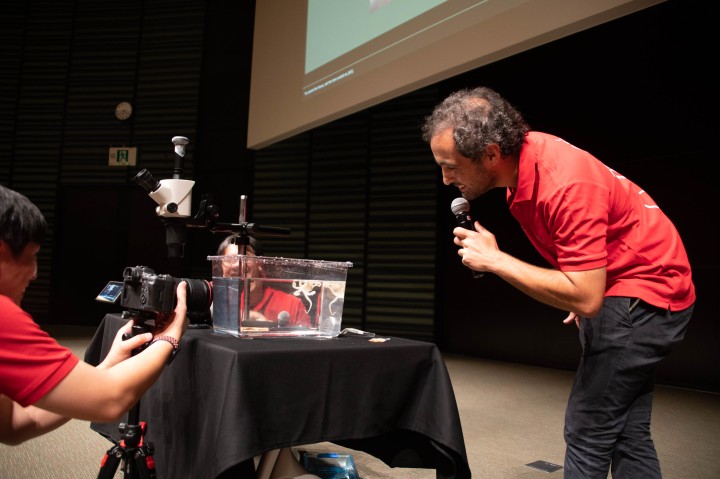
One of the lecture’s highlights was the camouflage quiz, in which volunteers from the crowd were randomly selected and asked to identify hidden cephalopods. Children from every corner of the auditorium pointed at the screen as they tried to find the camouflaged outline. After they had guessed, a video would play, revealing the animal’s true whereabouts.
“The excitement of the kids when they saw the video of a camouflaging octopus was amazing,” says Dr. Mano. “I remember feeling the exact same excitement when I first learned about camouflage during my graduate school, which was the very reason I began to study cephalopods. It was very fulfilling to share that awe and wonder of nature with them.”

Educational outreach has been a key priority for OIST since its foundation. Through public events such as the Marine Day Kids Lecture, the university seeks to help younger generations develop a sincere passion toward STEM fields. These efforts are crucial because they will inspire the next leaders in science and technology from Okinawa. From the sea of bright eyes that hung onto Dr. Mano’s words, it’s clear that many children left the auditorium with a newly found appreciation for cephalopods and their intriguing science.
Dr. Mano closed his lecture with a quote from his personal hero, the Hungarian biochemist and Nobel Prize winner Albert Szent-Györgyi: “Discovery consists of seeing what everybody has seen and thinking what nobody has thought.”

To see more photos from the event, please visit OIST’s Flickr.
Written by Aytek Abdulla











